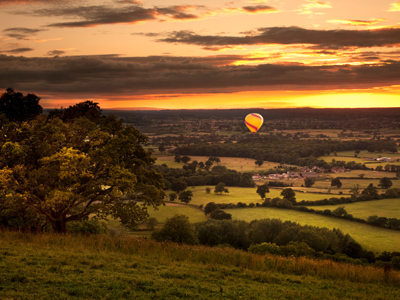
Animal Farm - Extract 2
This GCSE English Literature quiz is the second of two extract questions for Animal Farm by George Orwell. In it the animals find themselves taking comfort from one another on the knoll where they have a good view of the entire farm, which looks beautiful in the sunlight. The animals are agitated, as can be seen in Boxer’s swishing tail and fidgeting. This passage occurs not far from the end of the novella, after everything on the farm has taken a very sharp turn for the worse.
How to answer an extract question in an exam:
Always aim to read the passage through carefully more than once before you begin to answer an extract question for an exam. Each read-through will allow you to notice different aspects and particular details from the passage, so re-reading is never a waste of time.
Only Boxer remained on his feet. He fidgeted to and fro, swishing his long black tail against his sides and occasionally uttering a little whinny of surprise. Finally he said:
“I do not understand it. I would not have believed that such things could happen on our farm. It must be due to some fault in ourselves. The solution, as I see it, is to work harder. From now onwards I shall get up a full hour earlier in the mornings.”
And he moved off at his lumbering trot and made for the quarry. Having got there he collected two successive loads of stone and dragged them down to the windmill before retiring for the night.
The animals huddled around Clover, not speaking. The knoll where they were lying gave them a wide prospect across the countryside. Most of Animal Farm was within their view — the long pasture stretching down to the main road, the hayfield, the spinney, the drinking pool, the ploughed fields where the young wheat was thick and green, and the red roofs of the farm buildings with the smoke curling from the chimneys. It was a clear spring evening. The grass and the bursting hedges were gilded by the level rays of the sun. Never had the farm — and with a kind of surprise they remembered that it was their own farm, every inch of it their own property — appeared to the animals so desirable a place. As Clover looked down the hillside her eyes filled with tears. If she could have spoken her thoughts, it would have been to say that this was not what they had aimed at when they had set themselves years ago to work for the overthrow of the human race. These scenes of terror and slaughter were not what they had looked forward to on that night when old Major first stirred them to rebellion. If she herself had any picture of the future, it had been of a society of animals set free from hunger and the whip, all equal, each working according to his capacity, the strong protecting the weak, as she had protected the lost brood of ducklings with her foreleg on the night of Major’s speech. Instead — she did not know why — they had come to a time when no one dared speak his mind, when fierce, growling dogs roamed everywhere, and when you had to watch your comrades torn to pieces after confessing to shocking crimes. There was no thought of rebellion or disobedience in her mind. She knew that even as things were they were far better off than they had been in the days of Jones, and that before all else it was needful to prevent the return of the human beings. Whatever happened she would remain faithful, work hard, carry out the orders that were given to her, and accept the leadership of Napoleon. But still, it was not for this that she and all the other animals had hoped and toiled.
George Orwell, Animal Farm (Penguin Books, 1989)
Ready for more?
not all...
quizzers. Try to win a coveted spot on our Hall of Fame Page.







